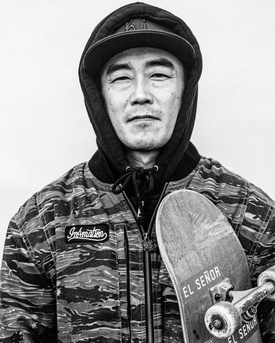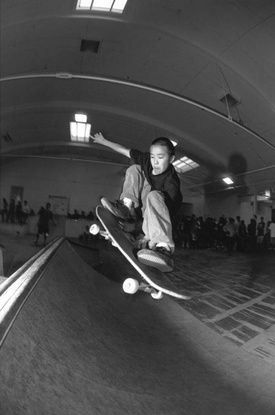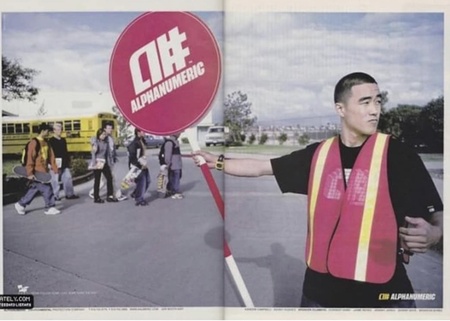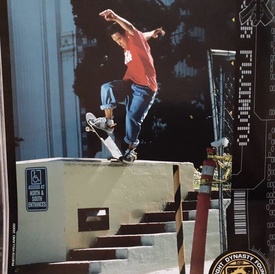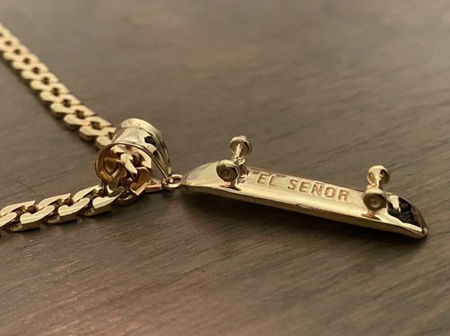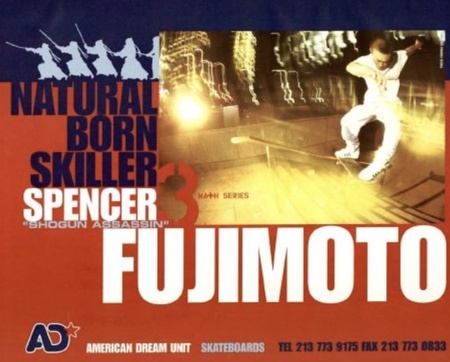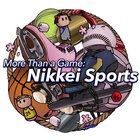October 31, 2020
Wow, lost the first draft…
So going to write in one sitting.
Technology and me… I am more of an analog guy.
In typical skateboard fashion I started this project the last day, in the 11th hour…
I am “gosei” meaning 5th generation in Japanese, in western culture it would be considered 4th generation Japanese American, or just “Chinese, chinaman, or respectfully, chino.” I got sponsored in 1989, turned pro in ’95, retired from pro-skateboarding in 2003, and did a variety of the New York hustles to maintain. Now, my wife and I own and operate El Senor New York, skateboarding’s first jewelry and only company est. 2012.
I started skating in 1985, San Jose, California. Inspired by Back to the Future and Michael J. Fox hanging onto cars, looking and being cool. I soon dropped gymnastics, and karate (ninja training, hehe) for skateboarding (I quit soccer and BMX earlier.) Skating was life. I became good really fast, some would say a prodigy. I got sponsored by Gremic, a local shop, and soon after Santa Cruz Skateboards in 1989. My first trip out of the country we went to the infamous Tijuana skatepark… it’s about a 2 hour drive from the border through the city—a dead end building courtyard, broken glass everywhere, basically PERFECT. We skated, had a lot of fun, I was 12 year old. All I wanted was fireworks. I found them, smuggled them over the border… and… what was I thinking????
Race was something I did not really think about until I started skating. I knew that we had different complexions and physical features, but my first friends I can remember having, were a mixed black friend and a Korean friend. I did not understand the “white” mentality. When I started skating, people at school and in the street would always say, “Why you doing that white-boy s***?” and the Asians, from all different ethnicities and nationalities would say, “You need to hang with your own kind.” Hilarious!
As a kid, I would go to my Korean, Chinese, or Filipino friends’ houses, and they always warned me before we went inside, “My grandmother is probably home. She doesn’t like Japanese… you know… WW2.” I am like, “My grandfather…” On more than one occasion I have had “grandma” gasp and murmur as I entered the room… I asked, “What she saying?” Friend says, “Don’t worry… she just said you remind her of a Japanese solider…” I was always confused, for them confusing a child for a solider… how could they blame me? My grandfather was in the 442nd US Army, my grandmother was imprisoned in an internment camp… I was born in America, I am 5th generation, more American than most.
Around 1991, I got on the famed World Industries team. Although I did not realize it then, we had a majority Asian team, and we were THE S***! Not many teams before or after, matter fact zero really, have had a majority Asian team without being a full on “Asian Team.” The famous skateboard superstar, Christian Hosoi (Japanese American) and his Hosoi Skateboards of the ’80s had an “all Asian” team, probably the first. Alphanumeric Apparel (I also rode for) might have come close, it was pretty well rounded and well represented with many ethnicities on the team as well behind the scenes. Alpha also had snowboarders and surfers on the team, which was and is very different from the norm of skateboarding, we usually have skater only, core teams.
I have been told by most, not all, of friends, (my wife is Dominican by the way, she understands the trials and tribulations I have endured) that I, and Asians are not allowed to speak about racism, and it does not apply to us… I believe it is part of the new, “driving a wedge” narrative that Asians are like whites on the pay and schooling scales and Asians are treated “different” than other minorities. Part of the “model minority myth.” Asian Americans actually have the biggest pay gaps and highest drop out rates in the US. My grandfather was in the 442nd, the famed and most decorated in history WW2 US Regimental Combat Team. To think, as Japanese Americans are being incarcerated, having all their possessions confiscated and liquidated for xenophobia, he signed up for the US Army to prove his loyalty to the US government and citizens. At the same time my grandmother and her family lost everything, including their chicken farm (the biggest in Sacramento at the time) and were “relocated” to an internment camp. Some people are taught that different is wrong, deserves no attention somehow, or is evil… Different is cool, different is necessary. Who wants to live in a world that is all the same? Variety is a good thing… I know I don’t like eating the same food every meal, or skating the same spot everyday.
I skated during what they refer to as the “golden era” of skateboarding. We innovated a lot of the tricks, style, even the shape of the “modern board.” The tricks they do now are the ones we invented 25-30 years ago. When someone says, “I remember you, you were a prodigy,” I’ll say, “thanks, but I think I reached some of my full potential.” It’s kind of a “diss” (disrespectful). I was a professional for 8 years as an adult, I was in every major magazine and video publications, and had many video parts throughout my “career.” It is not a career, it is an opportunity, that will be over one day, like all pro sports. See, a lot of prodigies do not reach their full potential. They are good as kids, get burned out as young adults, and it is over. A lot of times they get into a weird space in life. They are used to being treated special but that time is gone…
After I got fired into retirement from skateboarding (I guess I got old, and one by one, my sponsors which equal checks, went away), I worked at a mall-type surf/snow/skate shop in LA, only lasted a couple months; moved back to New York, was the porter (cleaner) for Maxfish, the famous LES art/dive bar. I worked at Stussy and Headporter; I was a manager/buyer of Nort and Recon, a famous New York sneaker and streetwear boutique. I opened Headroom hair salon in downtown New York. I was a personal assistant for a Texas cattle rancher/natural gas/club owner. I also was the team manager for DGK Skateboards and lastly (I know I’m forgetting something), Stevie Williams’ (famous pro-skater) personal assistant. All of these experiences helped me with creating and operating our jewelry company today.
I was told by a former boss in New York, happens to be from Germany, “You are moving to Hawaii.” I said, “Yeah, can’t wait.” She says, “You know, you got to be careful… they are very racists there…” I said, “Yeah, maybe, but not to me… laughing!” Hilarious! I have been living in Hawaii for a year and a half and have experienced some racism (nothing compared to mainland), most likely they are “haole” (white, or more specific, foreigner) or military. My wife and I fit right in, until we open our mouths and hear our accents.
When I am in Hawaii and people ask, “Where are you from?” If I say, “I am ‘gosei,’ my grandfather and great grandmother were born on a Kauai plantation, my grandfather was in the 442nd, my grandmother was relocated with her family to Tule Lake internment camp.” People know exactly what I am talking about (they might say I am a “katonk,” a Japanese American born and raised on the mainland), not the usual dummy that says, “No, I mean where are you REALLY from, like HOW or WHERE did you learn to speak English so good.” I’ll say, “I was born in Michigan.” We’ll get to it. They’ll say, “Oh, Japan, I love Japanese chicks, my brother is dating one now, ‘kawai,’ right, they got tight p******!!!”
Hawaii really is a melting pot, the language literally says it all. Pidgin English, like creole but the Hawaiian version, basically English, some Portuguese, all Asian/Polynesian languages mashed into one so everyone can understand. And there are the “hapa,” mixed Asian, and “haole.” I read in Strangers from a Different Shore by Ronald Takaki, “Divide and control is want they implemented on the plantations.” It’s the inspiration for the title of my piece and my daily life. If we’re mad at each other and fight each other we’ll not have enough energy or resources to fight THEM, the real overseers and oppressors. Like my ancestors, I live by honor and respect. I will continue to express myself the way I want, regardless of what people think or say. I have been an innovator my whole life and will continue to bring new ideas to the world that it has never seen before.
Skatelife!
© 2020 Spencer Fujimoto


